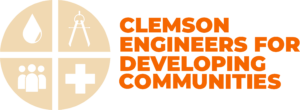In developing countries like Haiti, access to sanitation and hygiene lessons are minimal. This is caused by the lack of quality and participation in the education system. In Haiti, 78% of students drop out by the end of primary school and only 60% of adults are literate. Even when students are in school, they often do not have access to sanitation and hygiene lessons. Lack of knowledge on these subjects can lead to many illnesses and often death in developing countries. Greater access to sanitation and hygiene information will be able to decrease diseases within Haitian schools and will expand proper sanitation practices to the surrounding community. It is because of this that the mission of the WASH Education project is to create culturally appropriate Water, Sanitation, and Hygiene (WASH) Education lesson plans and materials that will be implemented in Summits Education schools in Haiti to improve WASH practices.
With the help of Summits Education, an organization that aims to improve the quality of education in Haiti and runs forty schools across the Central Plateau, the WASH Education team will be able to accomplish this goal. Through research of different teaching methods, the group has developed a literature review that will help shape the lesson plans. These lesson plans will maintain a low budget, be culturally appropriate to Haiti, be easy to implement, contain accurate information, and most importantly, be interesting to our target audience of pre-K through third grade. The first set of lesson plan topics that have begun development include Washing Hands, Brushing Teeth, Clean Water, the Consequences of Poor Hygiene, General Personal Hygiene, and Toilets and Open Defecation. In order to maintain a standardized lesson, the development has been broken down into sections including background information, the plan for visuals, the plan for activities, and a material list, and within this each section will be further detailed.
